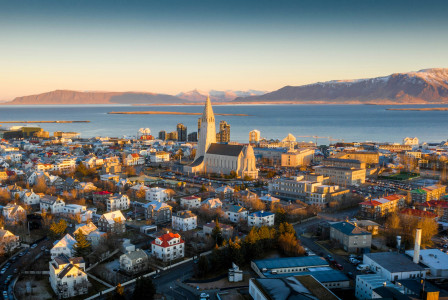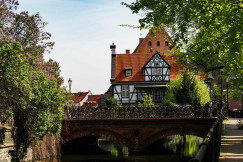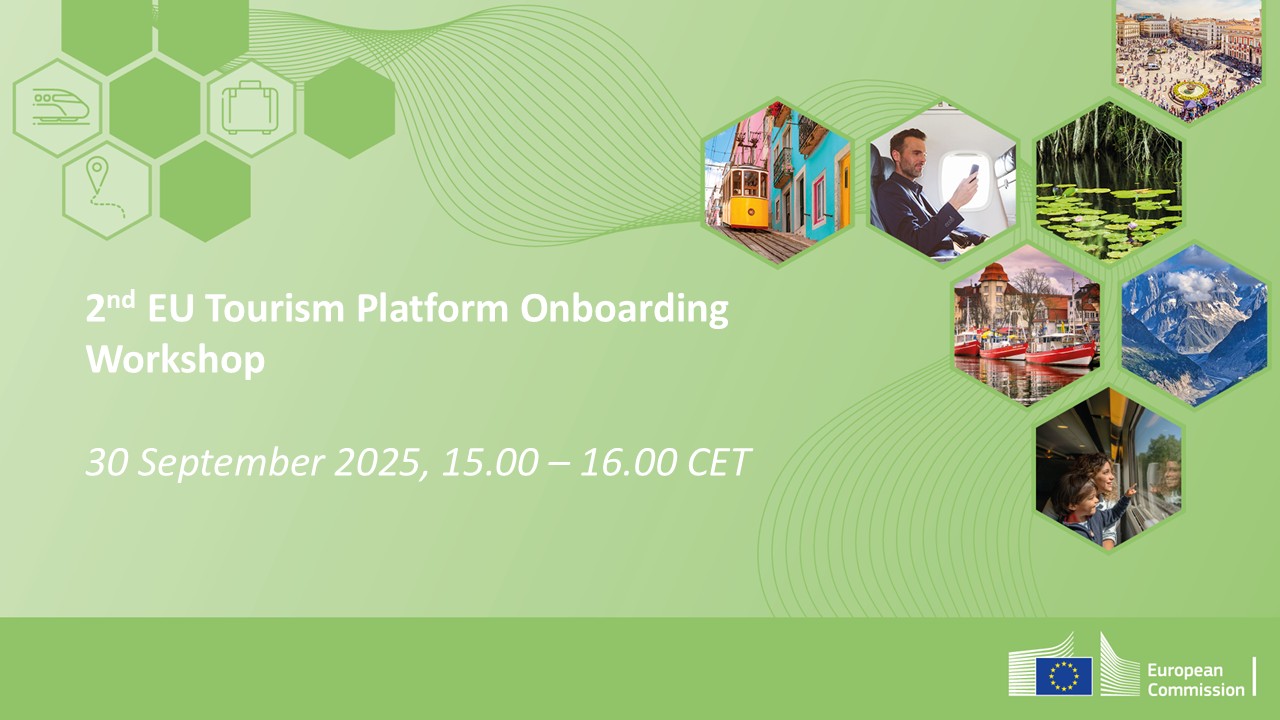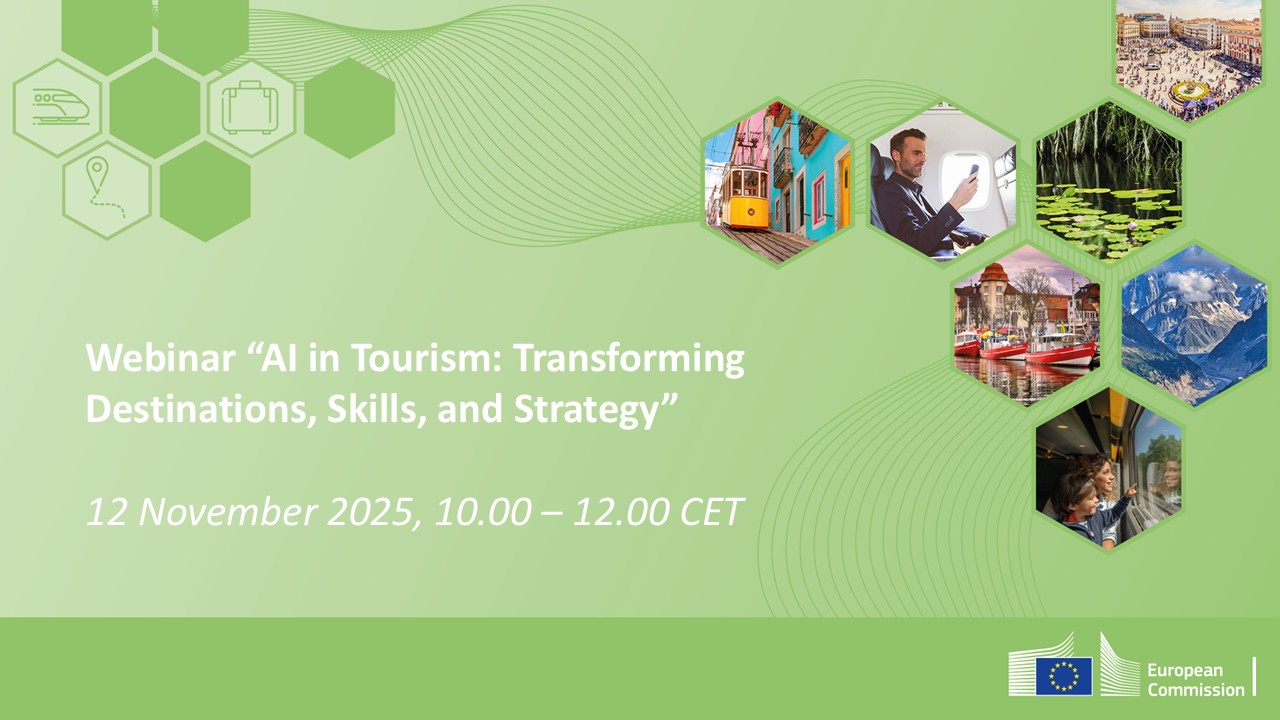News
24 November 2025
European Tourism Leaders Embrace Reykjavík Declaration for Community-Focused Future
News
24 November 2025
Adventure tourism
Coastal, maritime and inland water tourism
Cultural tourism
+46 more
Login / create an account to be able to react
-
83

European tourism leaders have endorsed the Reykjavík Declaration, emphasizing community-driven tourism that enriches local cultures and safeguards heritage. Discover how this initiative is reshaping tourism's impact across Europe, ensuring visitors are welcomed and resident voices are heard.
European Travel Commission
European Travel Commission
Topics
Albania
Armenia
Austria
Belgium
Bosnia and Herzegovina
Bulgaria
Croatia
Cyprus
Czechia
Denmark
Estonia
EU-27
Finland
France
Georgia
Germany
Greece
Hungary
Iceland
Ireland
Italy
Kosovo
Latvia
Liechtenstein
Lithuania
Luxembourg
Malta
Moldova
Montenegro
Netherlands
North Macedonia
Norway
Poland
Portugal
Romania
Serbia
Slovakia
Slovenia
Spain
Sweden
Switzerland
Türkiye
Ukraine
Other
Academic / Research and VET Institutions
Business Support Organisation
Company with 250 or more employees
Cluster Organisations
Consumer Organisations
Cultural and Heritage Organisations
Destination Management & Marketing Organisations
EU Institutions
Financial Institutions and Investors
Industry Associations and Chambers of Commerce
International Organisations
Local Authorities
Media / Journalist Organisations
National authorities
Networks and Federations / Confederations
NGOs / Non-profits
Notified Bodies
Regional Authorities
SMEs (a company with less than 250 employees)
Social Economy Entity
Trade Unions
Other
-
Specific types of tourism
-
-
Adventure tourism
-
Coastal, maritime and inland water tourism
-
Cultural tourism
-
Ecotourism
-
Education tourism
-
Festival tourism
-
Gastronomy tourism
-
Health and medical tourism
-
MICE tourism
-
Mountain tourism
-
Religious tourism
-
Rural tourism
-
Sports tourism
-
Urban/city tourism
-
Wellness tourism
-
-
Transition Pathway Strategic Areas
-
-
Changes in tourism demand and opportunities
-
Cross-border travelling
-
Digitalisation of tourism SMEs and destinations
-
Governance of tourism destinations
-
R&I on climate-friendly tourism
-
R&I on digital tools for tourism
-
Tourism strategies
-
Well-being of residents
-
-
Business activities
-
-
Activities of amusement parks and theme parks
-
Activities of associations and other organisations supporting tourism
-
Air passenger transport
-
Camping grounds, recreational vehicle parks and trailer parks
-
Events catering and other food services
-
Festivals, cultural and entertainment activities
-
Gardens and nature reserves activities
-
Holiday Housing / Apartments and other short stay accommodation
-
Hotel and similar accommodation
-
Mobile beverage services
-
Mobile food services
-
Museums
-
Operation of historical sites
-
Other
-
Other accommodation
-
Other amusement and recreation activities
-
Other food and beverage services
-
Other holiday reservation services
-
Other tourism transportation activities
-
Rail Passenger transport
-
Recreational and sport activities
-
Restaurants, cafes and bars (Food and Beverage serving activities)
-
Road passenger transport
-
Tour operator activities
-
Travel agency activities
-
Water (sea, coastal and inland) passenger transport
-
Share
At the European Travel Commission's 110th General Meeting in Iceland, national tourism organizations from 35 countries embraced the Reykjavík Declaration, a groundbreaking commitment to prioritize communities and residents in Europe's tourism strategies. The declaration, titled "Tourism for Europe, Europe for Tourism," sets forth a vision centered on leveraging tourism to regenerate destinations while safeguarding cultural and natural heritage.
Held under the theme "Tourism and Communities: Building Bridges Amid Unbalanced Growth," the meeting highlighted a shared goal: to create tourism that maintains a balance between visitor influx and resident wellbeing. With new research revealing that eight in ten Europeans are eager to welcome visitors, the declaration seeks to foster destinations where tourism enhances local life, nature, and culture. The initiative encourages innovation, digital transformation, and reinforces tourism as a vehicle for peace and understanding. Arnar Már Ólafsson, Director General of the Icelandic Tourist Board, expressed the importance of involving communities in shaping tourism, ensuring it remains a vibrant force for cohesion and prosperity.
Explore more insights on how European nations aim to achieve a harmonious coexistence between tourists and locals, ensuring tourism enriches everyone involved. For more comprehensive details, we highly recommend accessing the full Reykjavík Declaration.
#Community-based tourism #Sustainable tourism #Responsible travel #Cultural preservation #Destination management #Innovation in tourism
Comments (0)
Related content
See also
Don't miss the 2nd EU Tourism Platform Onboarding Workshop!
- Categories
- Coastal, maritime and inland water tourism Cultural tourism Ecotourism +64 more
Last chance to register for the webinar "AI in Tourism: Transforming Destinations, Skills, and Strategy"
- Categories
- Coastal, maritime and inland water tourism Cultural tourism Ecotourism +64 more
EU Launches €2 Million Funding Call to Explore Cultural Impact on Health and Well-being
- Categories
- Coastal, maritime and inland water tourism Cultural tourism Ecotourism +64 more






